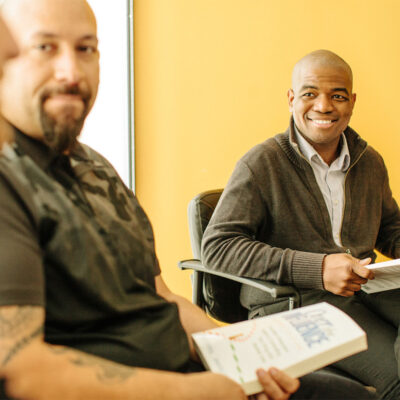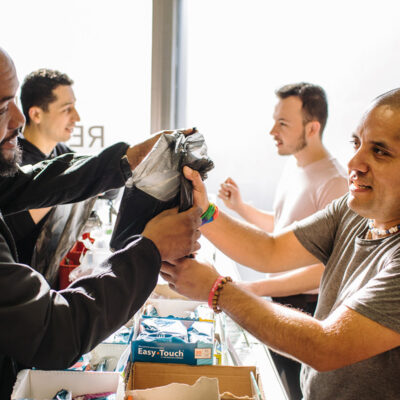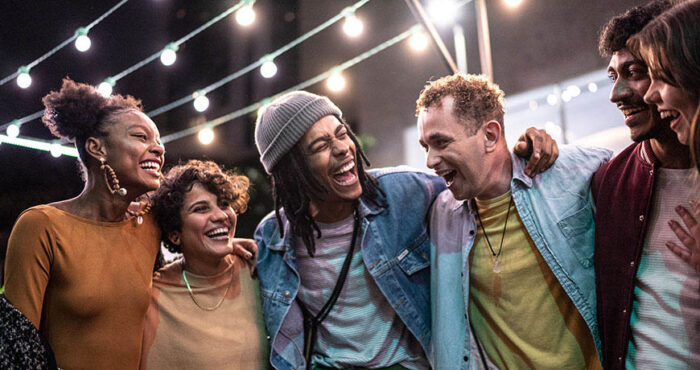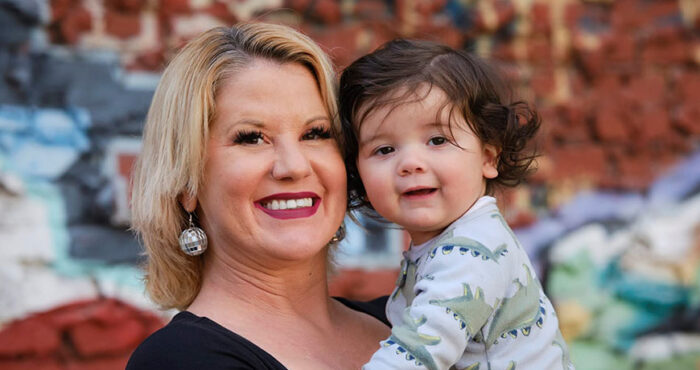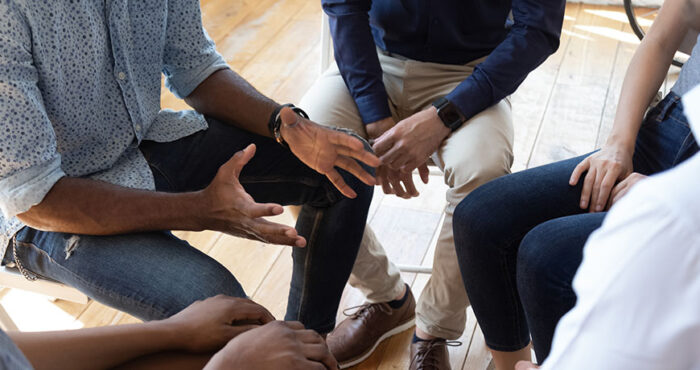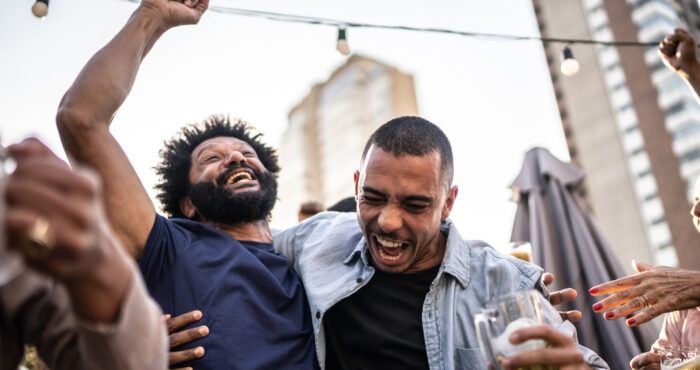My Chemical Romance: On Losing a Lover and Turning to Substances
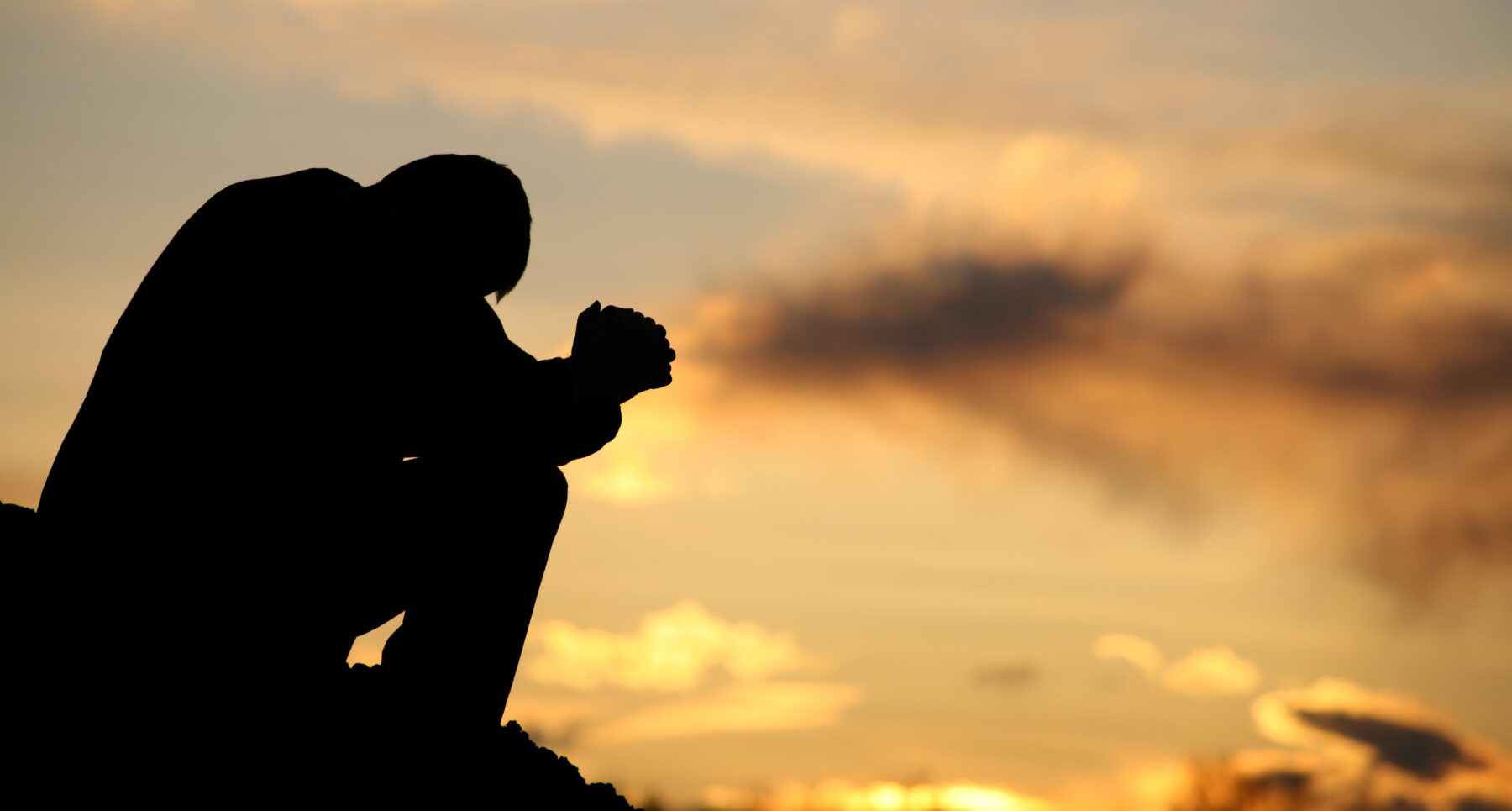
Grief is a tar that simmers beneath the surface of our consciousness, ensnaring us when we least expect it. It’s a vacuum, a hole that’s been left, sucking in and destroying the world around it. It’s a lightning bolt that strikes you out of nowhere, a beach ball that’s been held below the surface of the water, ready to explode.
This year I lost the man I love. Loved? Love. I never told him that. Santiago. My Spanish lover. I wish I had. Told him.
I had so much baggage in the way of our intimacy. A gay man’s baggage is heavy. That’s why alcohol is so synonymous with gay [male] culture. Alcohol is the lubricant that erases the past, or rather it’s a “soft touch” edit on a photo, smoothing away any wrinkles and replacing them with a cherub sheen. It’s the substance that, for me, encouraged me to step out of the “shy boy” persona I’d developed in my hometown in Mississippi.
You see, I came out when I was 12 in 2004. I think Will and Grace was the only thing I’d vaguely heard of that featured or represented me, my community. So at that time and in that place, I was, for all intents and purposes, a sinful alien to both my community of peers, and the broader community at large. The word spread quickly, wildfire. Fodder for hate. My parents were homophobic; not in a violent way, but my mom–after some sobs and outbursts of anger–told me there was no way I would know until I was in my mid to late twenties, effectively shutting down the conversation for years to, forcing me back into the solitary confinement of the infamous Closet, that torturous place so many queer people were and are forced to live and die in.
Beyond that, my basketball team, who I traveled with out of state for regional competitions every weekend, treated me like I didn’t exist. In retrospect, I realized they only tolerated me to the minimum degree possible because my dad was the coach. I am grateful for my dad’s unknowing protection, because those years could have been much worse. My friends’ parents did not want them to hang out with me. And of course I was constantly confronted with phrases like, “Love the sinner, hate the sin,” and friends and foes alike telling me they didn’t agree with my “lifestyle” choices. I remember things like a soft whisper of “Faggot” when I’d walk down the hall, or a group of people in one neighboring town yelling at me from down the block, “We don’t like you here!” This lasted 6 years, from 12 until I fled Mississippi, refugee adjacent, for college in Indiana. Little did I know, Mike Pence–who believes in state-funded conversion therapy–would be my governor. How can I communicate to people now, when gayness is so visible and seemingly omnipresent across popular culture, that just a decade ago, I was in a queer cold war, me against the heterosexist world?
One can see from my story alone how alcohol could become a fast friend, a comrade, a toxic love. How else were we supposed to cope with this massive, unnamed trauma? I am not giving credence to clichés like “I had this insatiable desire to escape”; rather, it was a deep need for a break. A break from the world that hated me. A break from constantly looking over my shoulder, wondering if this cis straight man or group of cis straight men would be the ones to attack. Luckily, that only happened to me once, in Oregon. They tore my shoulder. They kicked me repeatedly in the head, pushing me down when I got up. I was covered in blood, but I told the police I didn’t need an ambulance because of the copay. How can I communicate to people the deep wound–not from those men actually hurting me, although of course that was incredibly painful–the deep wound from being brutally assaulted in front of a large group of people who had gathered around to watch my demise? Not one of them intervened to defend me, even just on the premise that 4 or 5 large men against 145 pound me was an unfair fight.
So these wounds run deep. Which means the baggage, the barriers, the blockage, also run deep, preventing me from vulnerably, spiritually connecting with men for well over a decade. Santiago, my Spanish lover in San Francisco, was the first man I’ve really had a relationship with, my partner, if you will. The first man I’ve loved.
And now he’s dead.
Cardiac arrest. Apparently there was GHB involved, another substance that’s become fully integrated into certain sects of gay maleness. I’m not sure why GHB permeates our culture, to be honest. It is a great escape, an ease, a numbing. Inevitable relaxation. And because meth had also permeated much of gay male culture (need I explain? The intense sexual desire, the endless, wild sex, a dream for many men, any man; put two men with those similar desires together and you get fireworks), GHB became the perfect complement to that, the downer to your upper, the calming yin to the fiery yang). In addition to the alcohol and GHB, he had Covid. This probably makes him sound like an addict. I’m not sure he categorized himself as such. But many people struggle with substances, and we don’t need a permanent branding to categorize them.
My heart breaks thinking of the times when he was alive, wishing I could do things differently, just ever so slightly, so he’d end up with me, and not Chase. So he’d be alive. We’d broken up that summer, a few months before he passed. Another drunken argument. Lovely. But we always got back together. That was our style, I thought. So although he was dating Chase when he passed, I thought–I knew–we would reunite some time in the near future. But fate doesn’t wait.
Santiago and I met at a bar–Vera Cruz– June of 2020, my summer of love. I had come to the city for a Black Lives Matter protest (this was a year after George Floyd’s murder, when millions of us around the country were storming the streets, demanding justice, equality, and equity for Black lives), but I wandered around aimlessly for a half hour or so, unable to find the march (it turns out the police had been harassing an unhoused Black man some blocks away, so the enraged anti-racist throng stopped to defend him). Eventually, I gave up and decided to walk back to BART. On the way, I passed The Sycamore. I’ll just stop in for a glass of wine, I thought. I had been going to any and all BLM protests or marches or rallies I could find. I was there in downtown Oakland the first night of the riots, when people lit Chase Bank and Walgreens on fire and broke into Mercedes Benz, Target, Whole Foods, any store they could break the glass of. I had been tear gassed by the cops time and again; so I thought, “Let’s have a little break.”
I was on my second or third glass of wine when Ronaldo sat down at a table diagonal from me with his three best friends. As I drank, alone as usual, I kept catching them looking over at me, smirking and giggling. Finally, fortified by carafes of house red (one glass or one bottle? I’d forgotten so quickly), I looked at them and said, smiling, “What are you guys looking at?”
They giggled as if they’d been caught. It was me, they said. I was cute, they claimed. I blushed and thanked them. I got up and went back inside to the bar for another glass of red, and perhaps to escape their gaze(s) for a moment. I turned and Santiago was behind me. He was a manly-ish man, for lack of a better term, 5’11”, probably 200 pounds, beard, large hands. He had a cute smirk and spoke with an adorable Spanish accent. We began chatting, and some time later made our way to his house.
We had sex probably four times that night. When I went to work the next day, still a bit drunk, I told anyone who came within three feet of me, “I think I fell in love last night.” Santiago and I were together for a year. We broke up a few times over that year, but always seemed to magnetically be drawn back together, a moth to a flame (although we’d trade off who was the moth and who was the flame). My favorite activity with him was just exploring the city, linked arms or holding hands, walking, talking, soaking the world in together, as a unit. He lived near the panhandle, so we’d often paint the Haight red. I slept in his bed most nights. I trained his dog to sit. I introduced him to my family on Thanksgiving, the first man I’d done that with since my first (and only other) boyfriend in college. I befriended his friends, I knew all his places and servers and bartenders. I can still feel him, his presence, his spirit. He comes to me in hummingbirds, messengers of the spirit world.
It’s not so much that the pain causes me to use in chaotic ways. It’s more the deep exhaustion… I’m tired from being sad. Tired of being sad. I’m tired of missing him. I’m tired of reliving the past in my mind, our arguments, our breakups. Our makeups. Our walks. Our kisses. His smirk. I’m tired of the deep, unsatisfied longing. I’m tired.
And then there is the pain itself. It does hurt, when I think about it. So I try not to think about it. Meth helps (briefly, before it harms). It really does. It’s like a helicopter landing near a wildfire, dispelling the thick black smoke and creating a strange, convincing, hollow clearness. An artificial calm. A mirage–a delusion–of being healed. Alcohol helps too (for a while if you stay drunk). It’s all a slippery slope when Grief is the bedrock. I try not to think about how much I miss him. About all the regrets. The anger that comes from the injustice of it. Random. Just a random death. Gone, just like that. The man I loved. He was 43.
43.
What is an appropriate way to handle grief? To process? To hold it?
“It’s been said that grief is just love with no place to go.” I saw that on (unfortunately) Instagram, and it struck me as incredibly poignant and accurate. This pain is lost love.
When will the nausea go away?
When Santiago died in October, a part of me died with him. How do I keep living when I feel half-dead? Pro-tip: If you want to feel alive, use meth. Pro-tip 2: If you want to feel dead while alive, use meth. Scratch that. Pro-tip 3: Drunkenness induces euphoria if you can hold onto it before the dysphoria. Pro-tip 4: Cannabis?
People will read this as if it’s merely someone trying to escape everything around them, when in reality it’s someone temporarily treating their symptoms with medicine–or drugs, if you prefer that word. A logical solution to a problem–it may not fix it, but it does in some way, for a bit. Harm reduction.
A couple weeks ago I had a return to use. Chaotic use. A relapse. Because a couple weeks before that was the lapse. A lapse in judgment. In mindfulness. A need to not-experience the sadness for just a little bit. Not to escape, per se, I must emphasize that, but just to step away for a beat. Just a hit. Then a hit becomes two, and two becomes a decade. I’m determined to not let this disorder last a lifetime. But in order to do that I need to be present. Which means I need to grieve. No substances. Just me and the heartache. Just me and the heartbreak.
The only way out is through.






